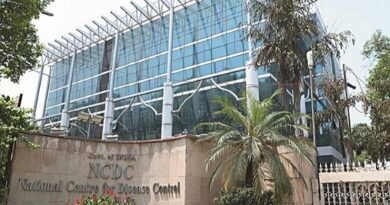Budget session set to be stormy
New Delhi, January 28 dmanewsdesk: The Budget session of Parliament beginning Friday is poised to be stormy with the Opposition set to attack the government over the three new farm legislations, amid an ongoing agitation by farmers.
The session will begin with the address of the President to the joint sitting of the two Houses on Friday morning followed by the presentation of the Union Budget on February 1.
A total of 16 Opposition parties have announced a boycott of the President’s address in solidarity with the farmers protesting the new farm laws, senior Congress leader Ghulam Nabi Azad said on Thursday.
The 16 Opposition parties have also demanded a probe into the violence on Republic Day in Delhi.
Opposition parties include the Congress, the NCP, Shiv Sena, DMK, Trinamool Congress, CPI, CPI-M and RJD.
With a view to have a paperless Budget, all the documents and the Economic Survey would be made available online soon after the authenticated copies are laid on the Table of the House, the Lok Sabha Secretariat has said.
Like the last time, in this session too COVID-19 protocols will be in place and Rajya Sabha and Lok Sabha will meet in shifts of five hours each — with the upper house meeting in the morning and the lower house in the evening.
Due to the pandemic, the Winter session was not held.
The Question Hour also makes a comeback in this session.
Due to paucity of time, there was no Question Hour in the previous session. The Monsoon session also saw the two Houses working on Saturdays and Sundays. But this time, Parliament will not sit on weekends.
Private Members’ business which usually takes place on Friday afternoons has also made a comeback in the Budget session, according to Lok Sabha secretariat. In the previous session, the Private Members’ business was not taken up.
Members introduce their own bills and resolutions during this period which are debated by the House.
During the session the government will also push to convert ordinances issued recently into laws. An ordinance has to be converted into a law within 42 days of the beginning of the session, else it lapses.
The ordinances issued recently include The Commission for Air Quality Management in National Capital Region and Adjoining Areas Ordinance 2020, The Arbitration and Conciliation (Amendment) Ordinance, 2020 and The Jammu and Kashmir Reorganisation (Amendment) Ordinance, 2021.
The session would conclude on April 8. In order to enable the standing committees to consider the Demands for Grants of ministries and prepare their reports, the Houses will adjourn on February 15 and meet again on March 8.
Source: PTI




